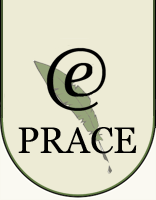
Birth of political ideologies on the Gold Coast
The political system of both early-independence and contemporary Ghana owes the principles on which it is based to nationalism and democracy – two opposing political ideologies introduced by the British in the colonial past of the country (Curtin 1995:655).
Both doctrines arose in the last decades of the nineteenth century from European ideology, which legitimized political power by referring to the concept of equality, as a response to the common need of overthrowing the political system based on the power of the privileged. Although they met in terms of the idea they served, democracy and nationalism differed in their realization. The former fought the power of the elite and called for equality of all people, which would result in the formation of an elected government, and give them equal election rights. The latter, however, opposed foreign rule and propagated the equality of all nations, which were defined by individual territory, history, culture and language. Those nations would have the right to self-rule, that is, to establishment of a sovereign national country (Curtin 1995:665).
Since the status of the indigenous population of the Gold Coast was that of the oppressed, it leaned towards the ideology of nationalism, which came as a result of problems associated with the foreign powers the inhabitants of the region had to deal with. And although the notion of a nation was a complete novelty to the native population of the colony, due to the fact that they all were representatives of different tribes, each of them having its own language, a set of beliefs and customs , they recognized the power of unification, which would give them strength to fight their oppressor, the British government (ibid 1995:666).
The colonial policy aimed at the unification of their subjects by permitting values and institutions recognized by the colonists and thus narrowing the range of languages natives were allowed to speak and religions they had the right to profess to one vernacular and single creed. Apart from the language and belief in one God, members of all tribes of the Gold Coast were united by a new set of customs and practices, and rejection of the old ones. They were also exposed to constant encounter with new tribes and states as the British were extending the area of their colony (the colony of the Gold Coast encompassed only the coastal area, before extending its territories over Asante region in 1896, Northern Territories in 1902 and German Togoland in 1919) (Amamoo 2000:5).
All those factors contributed to the establishment of Ghanaian nationalism, which was in the hands of educated representatives of the native population of the Gold Coast colony, such as Kwame Nkrumah and became a strong weapon used to overthrow the British colonial rule and form a new independent nation (Gocking 2005:98).
As for the doctrine of democracy, despite its arrival on the African political scene simultaneously with nationalism, it did not have raison d’ętre until the early 1990s when the government of Jerry Rawlings started a democratic era of the Ghanaian political system, which has lasted to present days (Salm 2002:28).
komentarze
Copyright © 2008-2010 EPrace oraz autorzy prac.